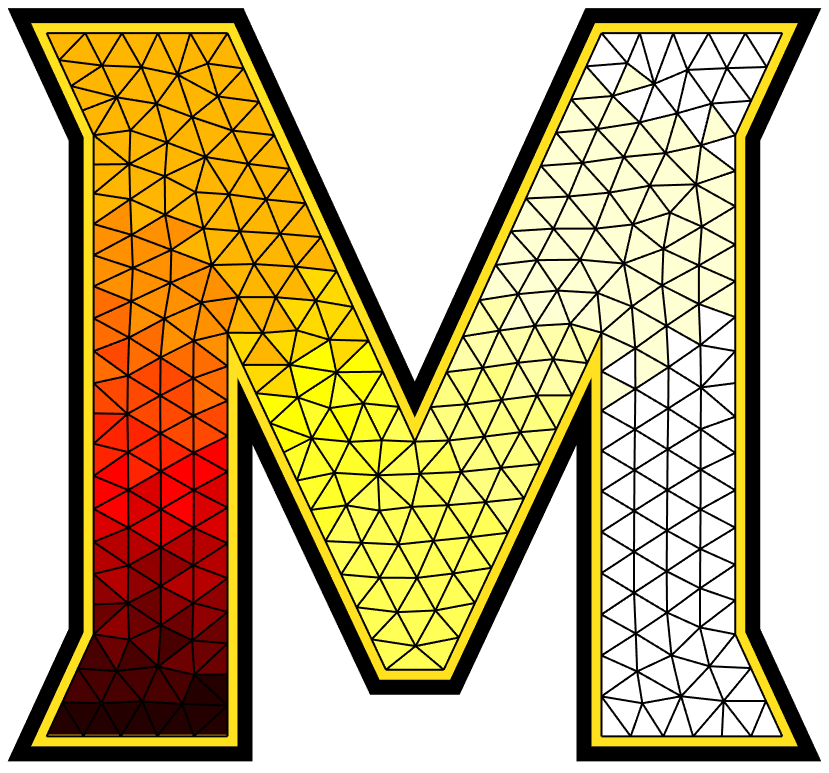
UMD Physics & AI Reading Group
A reading group focusing on the intersection of machine learning and computational science and engineering.
Organizers: Lee Sharma, Matt Ziemann, and Dayal Kalra
About
We are a reading group focusing on the intersection of machine learning and computational science and engineering. Topics include, but are not limited to, machine learning methods that embed physical priors, applications of machine learning algorithms to computational science and engineering, uncertainty quantification and trust, integration of numerical and data-driven techniques, and high-performance scientific computing with machine learning.
This group is oriented towards researchers in scientific machine learning and adjacent disciplines as well as anyone else with an academic interest in the area. We’d love to meet you!
To ensure high-quality discussion, please try to read the paper before attending the meeting.
Meeting Details
This spring, we’re meeting alternating Tuesdays, 5-6pm in IRB 4137. You can subscribe to our schedule at talks.cs.umd.edu.
Spring 2023 Schedule
| Date | Paper | Discussion Lead | Links |
|---|---|---|---|
| 2/14 | Phase diagram of training dynamics in deep neural networks: effect of the learning rate, depth, and width (2023) | Dayal Kalra | n/a |
Fall 2022 Schedule
| Date | Paper | Discussion Lead | Links |
|---|---|---|---|
| 10/11 | Clifford Neural Layers for PDE Modeling by Brandstetter et al (2022) | Ian DesJardin | paper |
| 11/8 | SE(3)-Transformers: 3D Roto-Translation Equivariant Attention Networks by Fuchs et al. (2020) | Josh McClellan | paper |
| 11/29 | Chapter 2 (Differentiable Physics) - Physics-Based Deep Learning (2020) | Lee Sharma | chapter |
| 12/6 | Diffusion Models (multiple papers) | n/a | n/a |
Summer 2022 Schedule
| Date | Paper | Discussion Lead | Links |
|---|---|---|---|
| 6/8 | Feature Learning in Infinite-Width Neural Networks by Yang and Hu (2020) | Dayal Kalra | paper |
| 6/22 | Chapter 4.1 (Graphs & Sets) - Geometric Deep Learning: Grids, Groups, Graphs, Geodesics, and Gauges by Bronstein et al. (2021) | Josh McClellan | paper |
| 7/6 | Chapter 4.2 (Grids & Euclidean Spaces) - Geometric Deep Learning: Grids, Groups, Graphs, Geodesics, and Gauges by Bronstein et al. (2021) | Lee Sharma | paper |
| 7/20 | Deep Unsupervised Learning using Nonequilibrium Thermodynamics (2015) Denoising Diffusion Probabilistic Models (2020) |
Lee Sharma | paper1 paper2 |
Spring 2022 Schedule
| Date | Paper | Discussion Lead | Links |
|---|---|---|---|
| 2/1 | Incorporating Symmetry into Deep Dynamics Models for Improved Generalization by Yu et al. (2021) A Practical Method for Constructing Equivariant Multilayer Perceptron for Arbitrary Matrix Groups by Wilson et al. (2021) |
Ian DesJardin | paper1 paper2 |
| 2/15 | MDP Homomorphic Networks: Group Symmetries in Reinforcement Learning by van der Pol et al. (2020) | Josh McClellan | paper |
| 3/1 | Chapters 1-3 - Geometric Deep Learning: Grids, Groups, Graphs, Geodesics, and Gauges by Bronstein et al. (2021) | Lee Sharma | paper |
| 3/15 | Deconstructing the Inductive Biases of Hamiltonian Neural Networks by Gruver et al. (2022) | Josh McClellan | paper |
| 3/29 | Simulation Intelligence: Towards a New Generation of Scientific Methods by Lavin et al. (2021) | Lee Sharma | paper |
| ~4/12~ | ~Postponed due to schedule conflicts~ | ||
| 4/26 | Chapter 3 (Geometric Priors) - Geometric Deep Learning: Grids, Groups, Graphs, Geodesics, and Gauges by Bronstein et al. (2021) | Lee Sharma | paper |
| 5/10 | Lean Coffee-style informal discussion | n/a | n/a |
Fall 2021 Schedule
| Date | Paper | Discussion Lead | Links |
|---|---|---|---|
| 9/2 | Physics-informed machine learning by Karniadakis et al. (2021) | Matt Ziemann | paper |
| 9/16 | Discovering governing equations from data by sparse identification of nonlinear dynamical systems by Brunton et al. (2016) | Lee Sharma | paper |
| 9/30 | Neural ordinary differential equations by Chen et al. (2018) | Kevin Zhang | paper |
| 10/14 | Physics-informed neural networks: A deep learning framework for solving forward and inverse problems involving nonlinear partial differential equations by Raissi et al. (2018) | Lee Sharma | paper |
| 10/28 | Hamiltonian Neural Networks by Greydanus et al. (2019) | Ian DesJardin | paper |
| 11/11 | Implicit Neural Representations with Periodic Activation Functions by Sitzmann et al. (2020) | Matt Ziemann | paper |
| 12/9 | Incorporating Symmetry into Deep Dynamics Models for Improved Generalization by Yu et al. (2021) A Practical Method for Constructing Equivariant Multilayer Perceptron for Arbitrary Matrix Groups by Wilson et al. (2021) |
Ian DesJardin | paper1 paper2 |